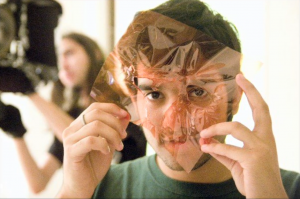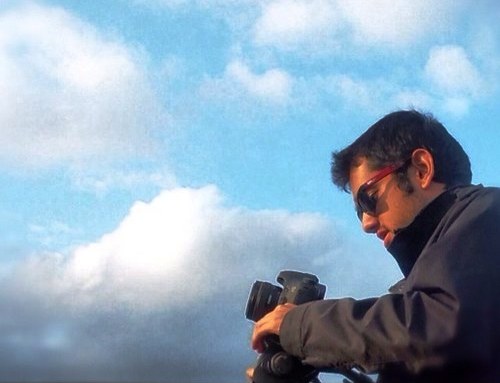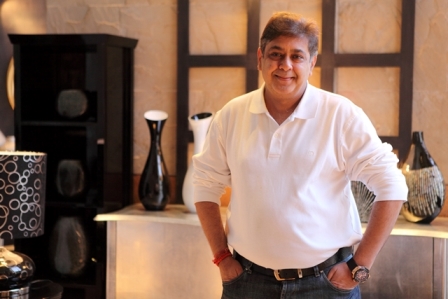Mihir Desai talks about making independent films and how overcoming several challenges makes the overall process that much more fascinating.
by Swaraj Dhanjal
When it comes to films, the first names of movies that come to our mind belong to Bollywood and Hollywood. In recent times, though, while these two mega film industries remain the largest producers of films between them, these aren’t the only sources of films in our country. We are increasingly seeing more documentaries, independent films and DIY films being shot and released by film enthusiasts.
In India, the indie and DIY movement is gaining momentum. Lower Parel resident Mihir Desai is one such independent filmmaker, who has made short films that have been hailed at international film festivals.
Early beginnings
“I’ve been interested in the arts since my childhood,” Mihir tells The Metrognome, adding that he has always relied upon visual arts as a tool to convey his thoughts and stories. It all began when his father got a handycam for the family. Mihir used that camera more than anyone else in the family. “I would always play around with it, try and stage scenes with objects, friends and sometimes myself. I had found a new medium to tell my stories,” he says.
To pursue his interest seriously, he enrolled for some summer filmmaking courses at the Senseindia Foundation when he was 16 and directed a short film titled Fate and Dreams with a few friends. The film made it o the Miami and San Francisco International Short Film Festivals in 2004. Seeing his interest and quality of work, his family sent him to pursue a Bachelor of Arts in Film and Video in film making to the Columbia College Chicago (CCC) in 2006.
Learning to be a filmmaker
 “CCC was an ideal film school because they allow you to break rules,” says Mihir. He says the school allowed students a great degree of freedom; students would literally be on their own with a handful of film equipment and a license to experiment. “At CCC I worked on all mediums, from 16 mm to digital,” says Mihir, explaining that this was crucial training as it ensured that students didn’t take the digital medium for granted.
“CCC was an ideal film school because they allow you to break rules,” says Mihir. He says the school allowed students a great degree of freedom; students would literally be on their own with a handful of film equipment and a license to experiment. “At CCC I worked on all mediums, from 16 mm to digital,” says Mihir, explaining that this was crucial training as it ensured that students didn’t take the digital medium for granted.
“We were taught to make the best of limited resources, hence helping us make confident decisions at times of crises,” he says. CCC also taught him that filmmaking was not just about creativity, it also encompassed team building, trust and collaboration. Mihir spent most of his time at CCC doing practical work and picking up the key skills that he would need for future.
Why go independent?
The idea to start his own filmmaking company, Auteur Mark, occurred to Mihir soon after he graduated from CCC in 2009. Since its inception, the company has worked mostly on corporate ventures, PSAs and independent short films, with a thrust on being economical and resourceful.
“There aren’t too many resources at our disposal, like big studios and fancy equipment , so we make the best of what we have without sacrificing the quality of the final product,” says Mihir. Technology has made this possible for them. Currently they are looking to produce interesting short films and will venture into feature production in near future.
Great expectations
The independent filmmaking scene in India is very challenging, says Mihir, and he has faced numerous challenges in the initial days of setting up Auteur Mark. “The biggest challenge with going DIY is that either people don’t take you seriously or they bracket you as a person with a specific skill set,” he explains.
Corporate videos are a major source of income for Mihir. He has worked with clients like DHL, Acumen Fund and Teach For India. “Getting corporate clients is all about networking, it is either through social media or through references,” he says. Corporate videos take from a few days to a few weeks depending on the clients requirements. He believes that doing corporate films is a tad easier as most of the research is done by the client themselves as compared to independent films, which require you to read a lot of literature and talk to a lot of people.
Apart from doing corporate videos Mihir also works as a freelancer; shooting and editing films to raise funds for his independent  projects. “So far most of my projects have been short films which tend to be inexpensive, hence I haven’t had the need to raise huge sums of money,” says Mihir. He has invested from his own pocket for basic equipment and rents only stuff like lighting and sound systems. “Also, I like to keep my teams small and I usually work with just four people on any project.”
projects. “So far most of my projects have been short films which tend to be inexpensive, hence I haven’t had the need to raise huge sums of money,” says Mihir. He has invested from his own pocket for basic equipment and rents only stuff like lighting and sound systems. “Also, I like to keep my teams small and I usually work with just four people on any project.”
Current project
Mihir is currently working on a project called Common Thread, a documentary on cotton and how it brings people together. “It’s a hypothesis, based on the premise that the clothes we wear were probably made in another country and its raw material grown in another. “Somehow there is a connection between you and the farmer, Common Thread is an exploration of that,” he says.
Farmers from India and the USA were compared and contrasted for their lives, family tradition and history of cotton. The inspiration for this film came from his father, who was a cotton trader for a long time. The film features farmers from various parts of the country like Maharashtra, Gujarat, Karnataka and Tamil Nadu, as well as the US, and cotton buyers and traders. Common Thread has taken more than a year to shoot and is still a work in progress.
The most time-consuming aspect was the research, which required them to travel long distances to meet farmers. Another challenge was the fact that whenever they went out they would end up shooting a lot of footage, not knowing where to stop. “Finally we came to a point where we had to tell ourselves to stop!” Mihir laughs. The film is now under editing and Mihir expects it to be ready for release by end of 2013 or early 2014.
Learnings from DIY filmmaking
Social media has gone a long way in helping Mihir – he uploads his work on his website and blog and shares those links with people on social networking sites. Showcasing his work through Twitter and Facebook has helped him reach his work out to people. “In this industry, it’s also important to build a network and Twitter has really helped me with that,” he says.
His journey in independent filmmaking has taught Mihir to be a better listener and to be more patient. “Most importantly, I’ve learnt to ignore what is useless and stay focussed on the useful,” he says. He feels that other young and upcoming independent filmmakers like him should build a strong film community to keep their kind of cinema alive and kicking.“We need to learn to co-exist, be more open with each other as artists, share, cross-promote and learn to collaborate better.”
Mihir has a few ideas lined up for his company’s future. The first step, he says, is to rebrand. “We are also working on a couple of scripts, for two shorts and one feature film,” he says.
Auteur Mark welcomes short film scripts; if you’ve been writing a script, send it to them at contactus@auteurmark.com
(Pictures courtesy Mihir Desai)





One Comment